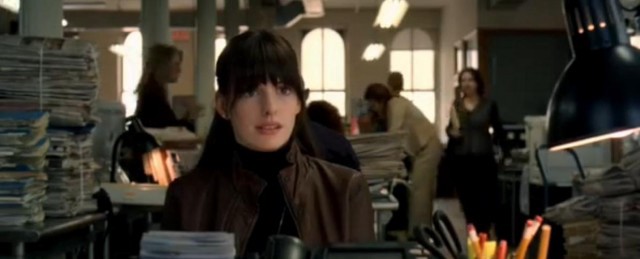Should I Take This Low-paying Job in This Tough-to-break-in Field?

I graduated from college with a B.A. in journalism last year, and worked seven days a week throughout school to hold down several part-time jobs and eventually landed three internships. After graduating, I got an ongoing contract with a media company of my dreams and moved to New York for the job. It’s been great, but the contract is coming to a close with no full-time opportunities. After months of sending resumes into HR black holes, I’ve been offered another job in my particular field of interest (lifestyle writing). It’s a rare opportunity, but here’s the thing: It pays very little, with no room for negotiation and little room for advancement in the company (it’s a startup). I’m afraid that after months of applying, this is the best I can get and I shouldn’t turn it down since jobs are so hard to come by, especially in New York media. I have about one month’s living expenses in savings. What should I do? Should I take the job, try to build experience quickly and keep applying to other jobs? Or should I turn it down? — E.

E., you’re just a year out of college and need to get a few more years under your belt and build your body of work to be in a better position to compete with the few decent-paying journalism jobs out there. You have some sense of how difficult it is to land a job here. Right now, you are competing with hundreds of other writers who have been out hustling for writing gigs for a few years. The New York market gets saturated every year with writers moving to the city hoping to make it here, as well as NYC graduates with master’s degrees in journalism from Columbia, NYU, and CUNY.
My first few years in the field were riddled with low-paying jobs. At one point, I even had a brief day job driving a truck and delivering newspapers to earn some cash to pay the bills while writing on the side and applying to editorial jobs at night. It took a few years of hustling and making connections (it’s important in this field to get to know other writers and editors) until I had enough experience to land interviews for jobs offering decent pay and benefits.
So, yes, take the job, get some more experience under your belt and make a plan for how you’re going to get your career moving. Start making connections (you can meet other writers and editors at meetups run by places like the Online News Association) — it’s much easier to get an interview if you happen to know a writer or editor who works at the place you want to work at.
If the job pays too little for you to make ends meet, find a job that will allow you to pay your bills. Just because you take a day job to pay the bills (like my job delivering papers), doesn’t mean you’re giving up on your career. It’s just what you have to do in the meantime while you figure out your next moves. Think about what you want to be doing, how much you want to be earning, and how you’re going to go about accomplishing those things (i.e meeting with a Buzzfeed editor if you want to work for Buzzfeed).
Whenever I get asked to be part of a panel and speak to journalism students, I ask them the following question, “How many of you have thought about how much you need to be earning after you graduate, and what you need to do to make this a sustainable career?” Very few people raise their hands.
Here’s the reality: A large percentage of the people I went to journalism school with are no longer working in journalism, and when I asked them why they made the change they say it was because they simply needed to earn more money. One friend quit her job as a staff editor at a regional magazine to work in a more remunerative public relations position. When I asked her about the transition, she said, “The money is way better and I work fewer hours — I couldn’t be happier.”
You’re still very early in you career and have time to figure it out. It’s very easy to get discouraged in this field. There comes a point when you simply have to start earning money, and that may be in something other than journalism. That point may come, as Maggie Estep put it in Sari’s piece yesterday, when “being broke isn’t very interesting anymore.”
Support The Billfold
The Billfold continues to exist thanks to support from our readers. Help us continue to do our work by making a monthly pledge on Patreon or a one-time-only contribution through PayPal.
Comments